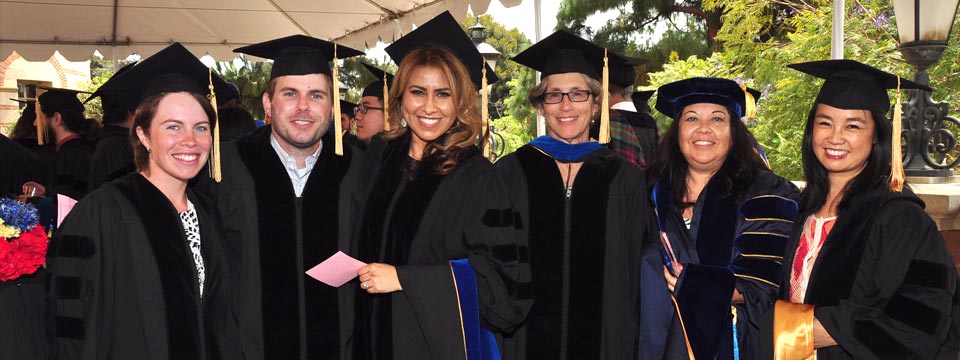The increasing rate of marriage failure worldwide shows how important the role of marriage counselors is. While some see the job of marriage counselors as a vital and good development in our daily lives, others see it as a disadvantage.
Reason being that it shows people no longer take their marriages and relationships seriously. To help reduce this marriage failure rate and increase sanctity in today’s relationships and marriages, you will need a full guide on how to become a marriage counselor.
In our relationships with people, we experience stress and conflict; couple relationships are no exception to this rule. According to Wilkinson & Finkbeiner Family Law Attorneys, almost 50 percent of all marriages in the United States will end in divorce or separation. Still, from their report, every 13 seconds, there is one divorce in America.
Quick math gives us 277 divorces per hour, 6,646 divorces per day, 46,523 divorces per week, and 2,419,196 divorces per year. The rates are alarming, I know but it would have been worse without the marriage counselors and therapists who help married people through life’s difficulties.
Therefore, this post will guide you on how to become a marriage counselor. It will also provide information on the degrees needed, job description, salary and career outlook of marriage counselors. In addition, at the end of this article, you will get answers to some frequently asked questions (FAQs) relating to marriage counselors.
Table of contents
- Who Is A Marriage Counselor?
- What is Marriage Counselling?
- When is marriage counseling needed?
- What are the Qualities of a Marriage Counselor?
- What are the roles of Marriage and Family Counselors or Therapists?
- How to Become a Marriage Counselor
- Education – Marriage Counselling Degrees
- Marriage Counselling Accreditation and Licensure
- What is the Salary of a Marriage Counselor?
- What Is the Job Outlook for Marriage Counselors?
- Where Do Marriage Counselors Work?
- What are the Benefits of being a Marriage Counselor?
- Marriage Counselor Associations And Groups
- Conclusion
- References
- AUTHOR’S RECOMMENDATIONS
Who Is A Marriage Counselor?
Also referred to as marriage and family therapist, a marriage counselor is a licensed mental health practitioner who works with couples to help them improve their relationships.
Marriage counselors evaluate relationship problems and offer strategies for resolving them using psychotherapy (also called “talk therapy”).
In addition, they help couples determine if their problems are reconcilable or not.
What is Marriage Counselling?
Marriage counseling helps couples; married or not; understand and resolve conflicts and improve their relationship. It is a form of psychotherapy that involves helping couples analyze and resolve their problems.
Also called couples therapy, it gives couples the tools they need to communicate better, negotiate differences, solve problems, and discuss in a healthier way.
Marriage counseling is usually short term. This means that you need only a few sessions to help you overcome a crisis.
On the other hand, if your relationship has deteriorated greatly, you may need marriage counseling for several months. As with individual psychotherapy, you will see a marriage counselor once a week.
When is marriage counseling needed?
As all couples experience tension or conflict at some point in their relationship, many do not know when to seek marriage or couple counseling.
However, according to most marriage counselors, it is best to seek counseling when you experience discontent in the relationship.
Below are some of the reasons why couples go for marriage counseling:
- Irreconcilable differences
- Financial issues
- Anger issues
- Infidelity
- Major life adjustments
- Frequent conflict or high-stress levels
- Conflicting ideas on childrearing Power struggles
- Communication issues
- Substance abuse
- Sexual dissatisfaction
What are the Qualities of a Marriage Counselor?
Working with adults whose personal lives are in distress can be difficult or unsettling. Therefore, it is expected of any marriage counselor to possess the following qualities:
- Compassion
- Listening skills
- Communication skills
- Interpersonal skills
- Organizational skills
Compassion
Marriage and family counselors often work with people in stressful and challenging situations. Therefore, they show compassion and empathy with their clients.
Listening skills
As a marriage counselor, you must give your full attention to clients to understand their problems, values, and goals.
Communication Skills
You must be able to communicate effectively with clients. You need to be able to express the information so that clients can easily understand.
Interpersonal skills
As a marriage counselor, you will meet and work with different types of people with various backgrounds and exposure. Since you will spend most of your time working directly with clients and other professionals, you need to be able to encourage good relationships.
Organizational skills
Not all marriage and family therapists are in private practice. However, those who own their own offices must keep track of payments and work with insurance companies.
What are the roles of Marriage and Family Counselors or Therapists?
Marriage counselors and therapists help people manage problems in their homes and profer solutions to overcome these problems. However, according to BLS, below are some of the responsibilities of these professionals:
- Encourage clients to talk about their emotions and experiences.
- Help clients manage their reactions and adjust to difficult life changes, such as divorce and layoffs.
- Guide clients in the decision-making process about their future.
- Help clients develop strategies and skills to change their behaviour and to cope with difficult situations.
- Refer clients to other resources or services in the community, such as support groups or inpatient treatment centres.
- Complete and maintain confidential files and mandatory records.
How to Become a Marriage Counselor
- Earn a relevant bachelor’s degree.
- Obtain a master’s degree in marriage and family therapy
- Gain clinical experience in the field
- Become a licensed marriage counsellor
- Continuing education to retain licensure
Earn a relevant Bachelor’s Degree
Typically, earning a bachelor’s degree is a starting point for most careers. Also, it is necessary to enroll in a master’s degree program for marriage counselors. Unfortunately, most schools do not offer bachelor’s degree programs, specifically in marriage counseling.
However, students can obtain their undergraduate degree in marriage and family therapy since the terms are often interchangeable, social work, psychology, or another related area.
In addition to teaching students the basics of psychology and social work, these programs education in many areas directly related to marriage counseling. Areas such as social psychology, cognitive psychology, sexuality, sociology, and interpersonal relationships.
Most bachelor’s degree programs require completion of relevant internships or clinical practice before graduation.
Check out these Top 17 Social Work Programs | Offline & Online
Obtain a Master’s Degree in Marriage and Family Therapy
To begin a career as a marriage counselor, you will need at least a master’s degree. It is needed to get licensure.
You can also choose the type of marriage counseling that suits what you want, as most master’s degree programs offer specializations.
Marriage counseling master’s degree programs also emphasize applied clinical experience and research, with students often having to complete numerous credit hours of clinical research and internships to earn their degree.
Gain Clinical Experience in the Field
Marriage counseling licensure requirements vary from state to state. Most states mandate marriage counselors to complete a certain number of hours of supervised marriage counseling work experience before they get their licensure.
Sometimes, these requirements exist independently of any clinical practicum credits obtained during the completion of master’s degree programs.
Basically, these clinical experiences are measured in weeks or hours, depending on the state. The standard supervised clinical requirement for marriage and family therapists is two years.
Become a Licensed Marriage Counselor
After completing your clinical experience and obtaining a master’s degree, you have probably met all the prerequisites for getting the license.
In other words, prospective marriage counselors can apply for a state license as this is the last step required before starting a marriage counselor career.
Note that the licensure varies from state to state. Therefore, meeting the requirements of a State might not be satisfactory to another.
Obtaining the marriage counselor licensure always requires a written exam. Depending on the state, classes and exams on ethical standards may also be required.
Some states have licensing exams, while others use a standard exam provided by the American Association for Marriage and Family Therapy Regulatory Boards. After meeting the educational requirements, clinical work experience, and exams.
Continuing Education to Retain Licensure
Basically, continuing education as a marriage counselor can help expand your field and open up new opportunities. In addition, you must continue your education in many states to renew your license.
However, the rules and regulations differ from state to state, and the courses you must take may also differ.
For instance, most licenses expire on an annual or biannual basis and require the completion of about 30 continuing education units for renewal. Also, different states have lists of approved topics or course providers that are accepted towards fulfilling these requirements.
Education – Marriage Counselling Degrees
As seen above, enrolling in a fitting educational program is the first step to becoming part of the Mental Health and marriage Counseling field.
However, to specialize in marriage or family counseling, you need to get to the masters level, as there are little or no options for it at the undergraduate level.
Bachelor’s Degree
A student wanting to pursue a marriage counseling career should opt for programs that focus on human behavior, relationships, health, and therapy.
Earning bachelor’s degrees in psychology, counseling, or social services are great options for a future in the marriage and family counseling field. Most programs here last for 4 years.
Bachelor’s Degree in Psychology
Typically, this program offers education in human behavior and related sciences and core psychology coursework. The coursework covers topics such as the following:
- Perception
- Psychological research methods
- Cognitive psychology
- Child development
- Personality theories
Check out these 15 Affordable Online School Psychology Programs
Master’s Degree in Marriage Counseling
Typically, a master’s degree program in marriage counseling will take approximately 2 years to complete.
As a basic requirement for a career as a marriage counselor, master’s programs train students in social science-related areas of marriage counseling.
Master’s degree in Marriage counseling courses cover areas such as:
- Marriage counselling ethics
- Therapy techniques
- Psychological development
- Group and family dynamics
- Marriage therapy techniques
- Human sexuality
- Adolescent and family counselling
- Cultural diversity
- Couples therapy
- Family systems sociology.
Here, students get to pick specializations that best fits the type of marriage counselling they want.
Doctoral Degree in Marriage Counseling
A doctoral degree will help expand your marriage counselor career opportunities in academia and research. Most counselors choose to continue their education by earning a doctorate in marriage and family therapy.
A Ph.D. in Marriage and Family Therapy consists of MFT theory and practice classes, research, and clinical work with clients. To enroll in this program, students must have a master’s degree and satisfactory standardized test scores. They generally last five to seven years.
Basically, the coursework here will cover:
- Quantitative research methods
- Adolescent development
- Statistical methods
- Dynamics of family relationships
- Ageing
Marriage Counselling Accreditation and Licensure
Prospective marriage counselors are advised to enroll in programs that are recognized by accrediting bodies. Several organizations accredit counseling programs; they include but not limited to the following:
- Council for Accreditation of Counseling & Related Educational Programs (CACREP)
- Commission on Accreditation for Marriage and Family Therapy Education (COAMFTE)
- Masters in Psychology and Counseling Accreditation Council (MPCAC).
Licensure for a marriage counseling career varies among states. However, the requirement for getting licensure is basically a master’s degree and 2,000 to 4,000 hours of postdegree supervised clinical experience, that is, an internship or residency.
In addition, counselors must pass a state-recognized exam and complete annual continuing education classes to renew the license.
For more information on licensing for marriage and family counselors and therapists, contact the Association of Marital and Family Therapy Regulatory Boards through the link below.
What is the Salary of a Marriage Counselor?
According to the US Bureau of Labor Statistics 2018 report, the median annual wage most marriage counselors and family therapists earn is $50,090 per year and $24.08 per hour. The lowest 10 percent earning less than $31,850 and the highest 10 percent earning more than $82,240.
Still on the BLS marriage counselor salary, below are the median average wage for those working in top industries.
- The state government, excluding education and hospitals – $69,900
- Outpatient care centers – 51,270
- Offices of other health practitioners – 49,190
- Individual and family services – 44,760
Meanwhile, according to GlassDoor, marriage and family therapists earn an average base pay of $53,045 annually.
What Is the Job Outlook for Marriage Counselors?
According to the US BLS, the employment of marriage counselors and family and therapists is expected to increase by 22 percent between 2018 to 2028, much faster than the average for all occupations.
This growth is expected because of the increasing use of integrated care. Integrated care is a treatment of several problems at once by a group of specialists.
By providing integrated care, marriage and family therapists work with counselors who provide community and social services,, such as substance abuse, behavior disorder, or mental health counselors,, to address patients’ issues as a team.
Where Do Marriage Counselors Work?
Marriage counselors and family therapists work in every country’s public and private sectors. Some may run their own private offices, while some work in hospitals and social service centers.
In addition, some may decide to work with a specific group like homosexual couples, incarcerated, elderly, families or newlyweds.
However, below is a breakdown of where marriage counselors work:
- Private Practice
- Social Service Agencies
- Medical Centers
- Mental Health Centers
- Nursing and Residential Care Facilities
- Government
- Legal and Correctional Systems
- Outpatient Care Centers
- Inpatient Care Facilities & Hospitals
- Offices of Health Practitioners
- Schools
- Substance Abuse & Addiction Treatment Centers
- Military
- Employee Assistance Programs (EAPs)
- Health Maintenance Organizations – HMO’s
- Department of Veterans Affairs (VA) Facilities
- Churches and Religious Settings
Generally, most marriage counselors work full time. However, some work evenings and weekends to accommodate their clients’ schedules.
What are the Benefits of being a Marriage Counselor?
As you proceed in your career as a marriage counselor, you will get to enjoy some benefits. Below are some of these benefits:
- If you love meeting people, you will enjoy your marriage counselling career. Here, you get to work with people from different backgrounds and walks of life.
- You get satisfaction from the fact that you can help people work through mental and emotional stresses and disorders.
- The flexibility of work, especially when you run your private practice.
- Variety of work environment. As a marriage counselor, you have various job options from community services to running your practice.
- Since marriage counselors deal with human behaviors and emotions, they learn about various psychological approaches, such as Solution Focused and Cognitive Behavioral Therapy. These skills can be used in other lines of work and your personal life.
- You enjoy independence as you work. Marriage counselors work independently, assessing the needs of their clients and coming up with forms of treatment and intervention that suit them.
- Opportunity for life long learning. Typically, to maintain your license as a marriage counselor, there is room for life long learning.
- As a marriage counselor, you get to see the immediate impact of your interventions in your clients.
- You enjoy fantastic job security, regardless of where you decide to work.
- Mobility of work; you can work in any location across the country. However, you may need to update your license for it to be valid in a particular state.
Marriage Counselor Associations And Groups
Below are some associations and groups you can join as a marriage counselor.
- American Association for Marriage and Family Therapy (AAMFT)
- International Association of Marriage and Family Counselors (IAMFC)
- National Council on Family Relations (NCFR)
- Delta Kappa MFT
- European Family Therapy Academy
- American Family Therapy Academy (AFTA)
Conclusion
As more marriages occur and individual differences exist, the place of marriage counselors cannot be overlooked. With the information above, you will have little or no issues as you pursue a career in marriage counseling.
GOOD LUCK AND SUCCESS!!!
References
- Study.com – Be a Marriage Counselor: Education and Career Roadmap
- LearnHowToBecome – How to Become a Marriage Counselor
- Innerbody.com – Couples Counselor – Marriage Therapy Career Information
- HealthGrad.com – 16 Benefits of Becoming a Marriage Counselor
- HealthyPlace.com – What is Marriage Counseling? Who’s It For? And How Does Marriage Counseling Work?
- CareersInPsychology – Where People with MFT Degree Work
- BLS – Occupational Outlook Handbook of Marriage and Family Therapists
- Study.com – Psychology
DISCLOSURE: This post may contain affiliate links, meaning when you click the links and make a purchase, we receive a commission.






1 comment
Comments are closed.